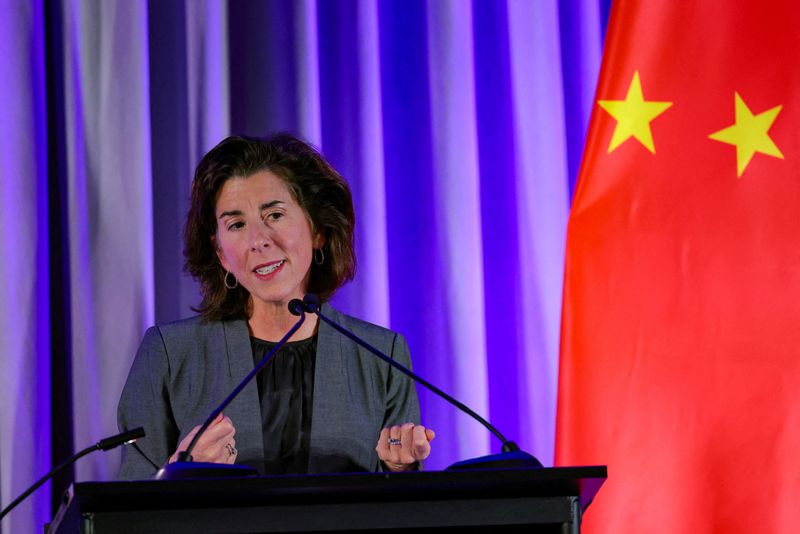WASHINGTON (Reuters) - The chip powering the Mate 60 Pro phone of sanctioned Chinese company Huawei is not as advanced as American chips, U.S. Commerce Secretary Gina Raimondo said on Sunday, arguing that it shows U.S. curbs on shipments to the telecoms equipment giant are working.
Huawei, which has been on a trade restriction list since 2019, surprised the industry and the U.S. government when it released a new phone powered by a sophisticated chip last August. The Huawei Mate 60 Pro was seen as a symbol of China's technological resurgence despite Washington's ongoing efforts to cripple its capacity to produce advanced semiconductors.
It was also seen by many as a slight for Raimondo, who was visiting China when it was released. But in an interview with CBS News' "60 Minutes," Raimondo pushed back against that view.
"What it tells me is the export controls are working because that chip is not nearly as good, ... it's years behind what we have in the United States, she said. "We have the most sophisticated semiconductors in the world. China doesn't."
Washington has been locked in a years-long effort to deprive Beijing of advanced semiconductor chips and the tools needed to make them over concerns they would be used to strengthen China's military capabilities.
Huawei, a symbol of that tech war, was added to the so-called entity-list in 2019 amid fears it could spy on Americans, forcing its U.S. suppliers to seek a difficult-to-obtain license to ship to it.
But its suppliers, including Intel (NASDAQ:INTC), have received licenses worth billions of dollars to keep selling to the company. Huawei's revelation of its first AI-enabled laptop powered by an Intel chip this month has fueled anger among Republican China hardliners.
When asked if she was tough enough on big business, Raimondo was emphatic.

"I hold businesses accountable as much as anyone," she told Lesley Stahl on "60 Minutes." "When I tell them they can’t sell their semiconductors to China, they don’t love that, but I do that," she added.
The Huawei phone also prompted a review by the Biden administration to learn the details behind the chip that powers it, the most advanced semiconductor China has so far produced. But details of the review have been scant.